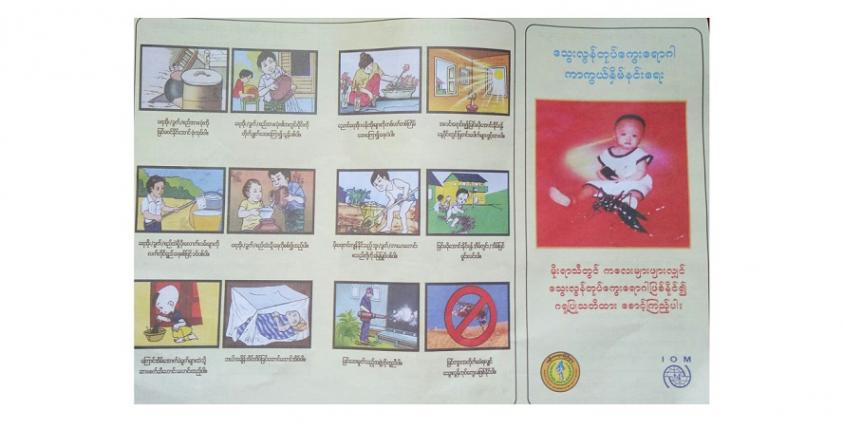Up to 436 people have been infected with dengue fever within the first seven months of 2018 in the Karen (Kayin) State, the State Department of Public Health said.
The dengue fever cases have been reported from January to July 14 within this year and the majority of the cases occurred in Hpa-an Township as there have been 306 cases in Hpa-an Township, 35 cases in Kawkareik Township, 39 cases in Hlaingbwe Township, 20 cases in Myawaddy Township, eight cases in Kyainseikgyi Township, 22 cases in Hpapun Township, and six cases in Thandaung Township.
“It’s wet in the monsoon so there are more mosquito breeding and dengue fever infection. Dengue fever can be [subdivided] into grade 1, 2, 3, and 4. Grade 1 is the weakest stage. Most of the cases are Grade 1. Grade 4 is [the stage where the patient is] admitted to the hospital after suffering from a shock. This rarely happens. We need to be cautious as deaths can occur at this [stage],” said Dr. Tun Min, head of the State Department of Public Health.
Dengue fever mostly affects children between the age of five and nine and no deaths have been reported [in the state] up to today, he continued.
Dr. Tun Min added that the health department has been supervising the prevention of mosquito larvae by spraying insecticides in the wards every week and raising public awareness on dengue fever.
The health department urged the public to seek medical treatment in hospitals and clinics if children under the age of 15 have high fever, red spots on skins, coffee-ground vomits, black stools, and low blood pressure and show signs of shock during the monsoon.
“The important thing is public cooperation. If they are going to use pots and buckets to store water, they must cover them properly to prevent mosquitoes from entering and laying eggs. If there is water residual, they must be cleaned properly using coconut fibre. [Water in the] vases must be changed regularly. The best [solution] is to take prevention measures against mosquito breeding by keeping the interior and exterior of the house clean,” Dr. Tun Min advised.
According to statistics from the health department, the Yangon Region has the highest number of dengue cases due to high population, followed by the Ayeyarwady Region and the Tanintharyi Region in the second and third places.








